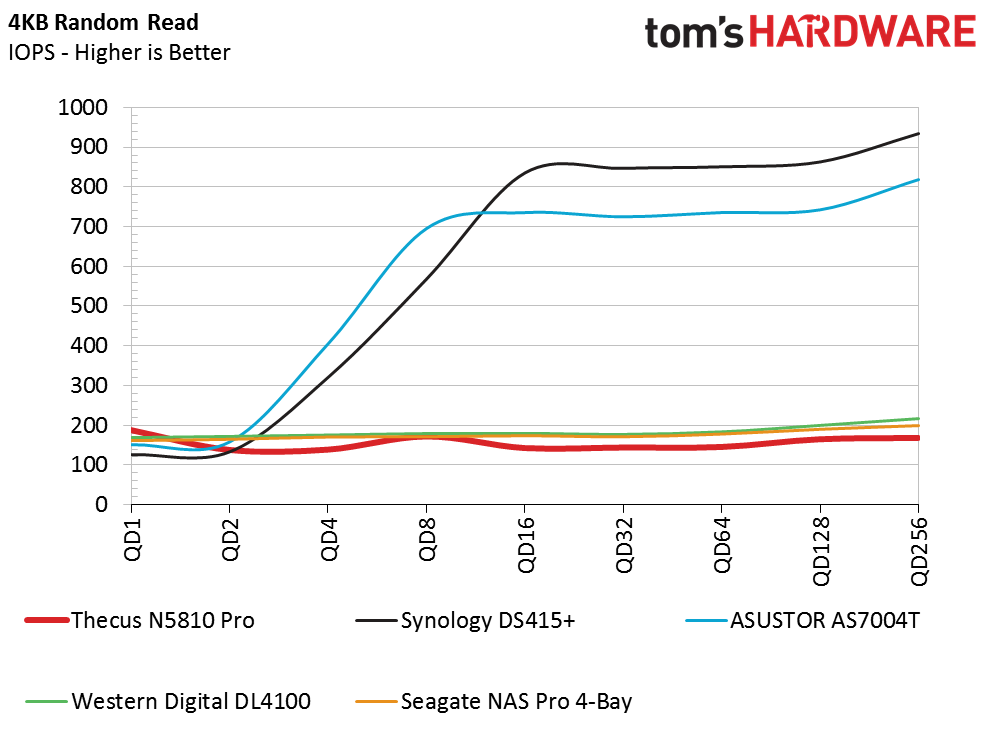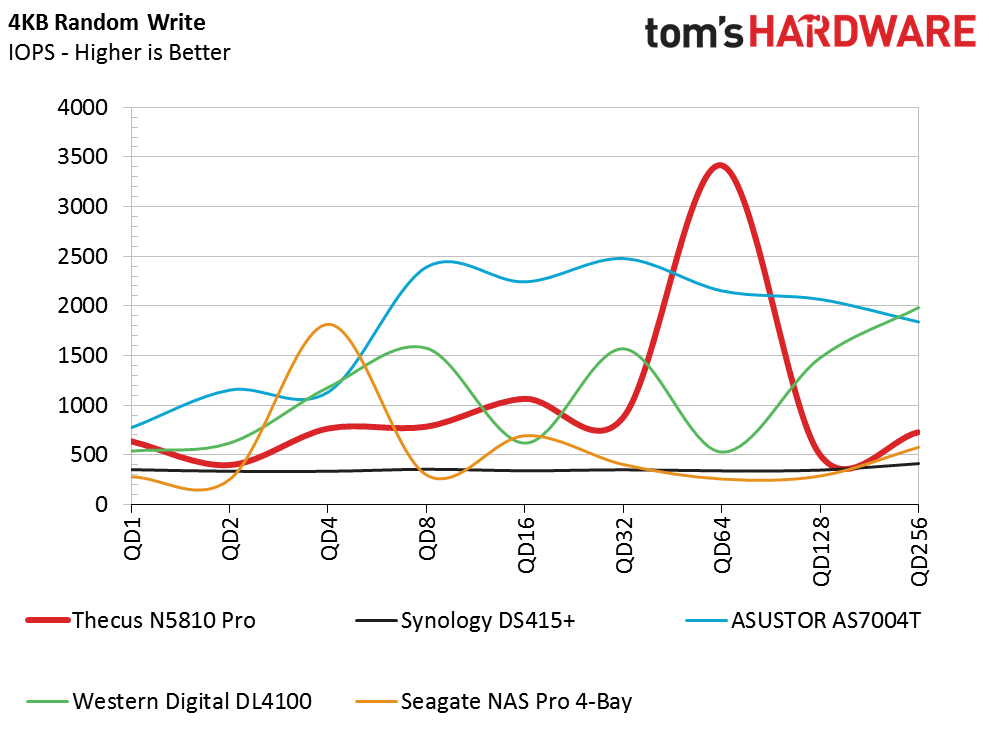Thecus N5810 Pro NAS Review
Thecus' N5810 Pro is the only NAS in its price class with a built-in battery backup that allows the system to save your data even after the power goes out.
Why you can trust Tom's Hardware
Random Performance


Reading and writing sequential data is easy for NAS products. Random tasks (or any small file transfer) work the system harder, though. Two products really stand out in this test. One uses a Core i7 and the other uses a higher-end Atom processor. Both deliver better performance than the Intel J1900 used in Thecus' N5810 Pro.
The N5810 Pro falls behind Asustor's AS7004T in the random write test. That's the only NAS in our comparison equipped with a Core i7 CPU. It's very difficult for the other systems to keep up in benchmarks where raw CPU performance is a limiting factor. The Brtfs file system on the N5810 Pro does a good job of keeping Thecus competitive, though.
Get Tom's Hardware's best news and in-depth reviews, straight to your inbox.
Current page: Random Performance
Prev Page Sequential Performance Next Page Sequential Mixed Data Sweep
Chris Ramseyer was a senior contributing editor for Tom's Hardware. He tested and reviewed consumer storage.
-
Lulzon Typically battery backups are SLA (sealed lead acid) which is most likely why they don't get packaged with NAS systems - they're heavy, they're a dangerous good by transportation and shipping rules, they expand and can release gasses when under load and charged. The upside? They have way more capacity than that of a lithium-ion as shown in this little unit, they (probably) cost much less, and they last longer (5+ years vs 2-3). In terms of a NAS though, the capacity isn't really an issue if the only thing the NAS is doing is shutting down to avoid data loss/corruption.Reply -
Aris_Mp 55.3W under heavy throughput and 35.1W at idle with 5x Seagate ST500DM005 HDDs and RAID 6 configuration.Reply -
TontNZ I'm not sure if I've just missed it - but: How many drives of what brand and capacity, in what raid mode were used for the testing?Reply
It would be good to single this information out into one of the section headings. It may be redundant as you presumably standardise this across NAS of a given bay capacity - but it would still be useful. -
This is an impressive device. I'd definitively give it a try for home office solutions. The only downside I can see to it is that if the internal memory were to die (flash, ram), the backups are probably gone unless they keep using the same system/setting organization and it is forward compatible with other similar systems.Reply
5 years is a long time and unless they intend to have the same product line around for a long time, it will either be EOL or replaced with an updated version.